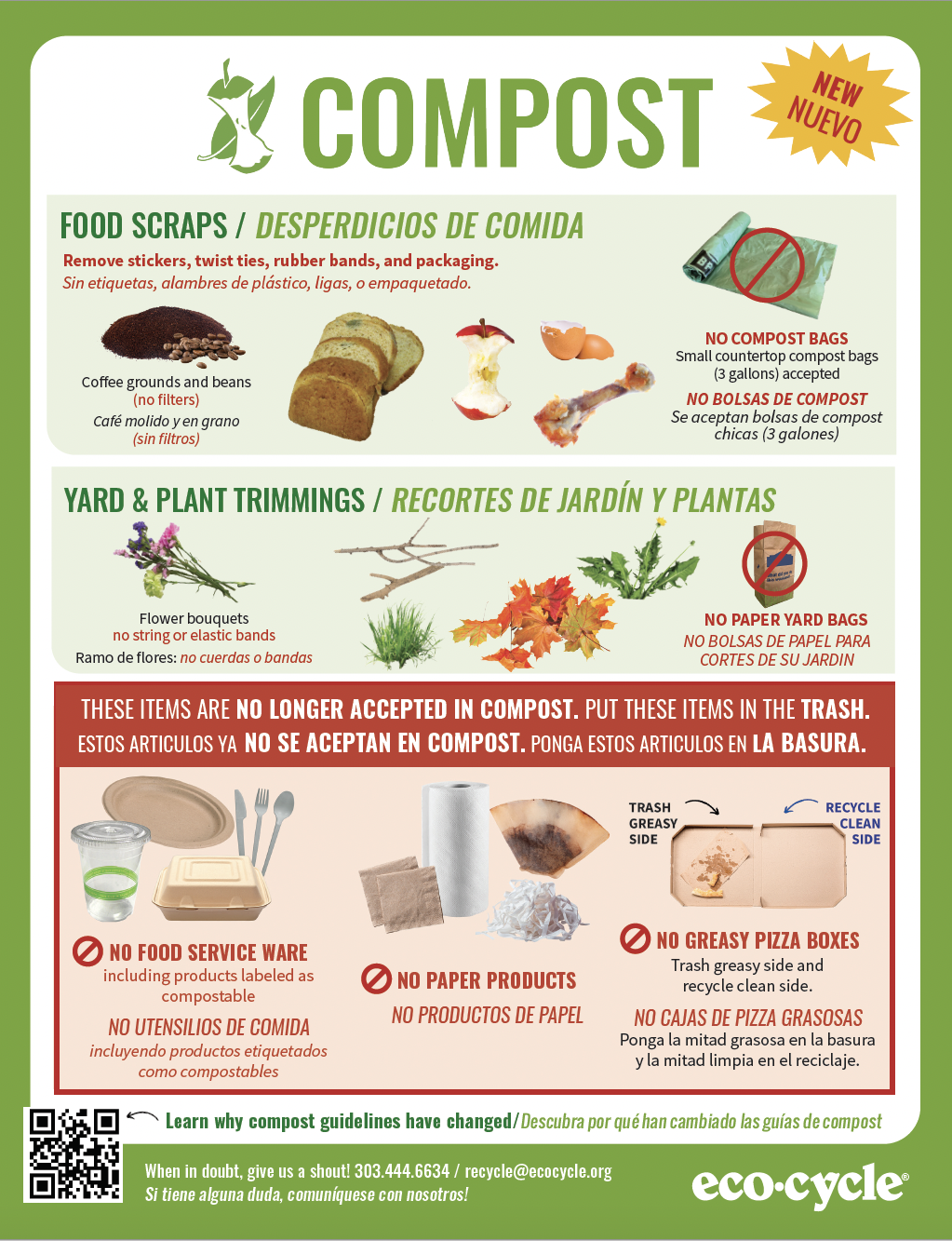Follow These Five Steps to Reduce Your Food Waste
No one likes to waste food, but despite our best intentions, most of us have pulled out spoiled leftovers from the back of the refrigerator or thrown out fruits and veggies that were past their prime. In the US, up to 40% of food is thrown out—amounting to 400 lb of wasted food per person per year.
Additionally, wasted food generates pollution contributing to climate change to a degree equivalent to 37 million cars per year. If we redirected just one-third of the food that we now waste to those in need, it would exceed what is needed to address the issue of food scarcity in this country. If minimizing food waste is important to you, here’s how you can get started!
1) Rethink: Question Your Habits
To really reduce food waste, we have to start by questioning our beliefs and actions that can unintentionally lead to wasted food.
Overshopping
Do you do all of your food shopping on one day of the week hoping to avoid a second trip to the grocery store? Try limiting what you buy to the necessities—a second trip to the store later in the week could be just a quick stop!
Making Too Much Food
Many recipes yield far bigger meals than your household can consume. Try halving the recipe, or follow recipes designed for smaller yields, like those provided by Insanely Good and Dessert for Two.
Rethinking What’s Edible
Do you cook broccoli florets, but throw out the stalks? Or roast beets, but never eat their greens? Stems and leaves of vegetables are actually loaded with nutrients—find ways to use up those veggie scraps!
2) Refuse: Take Only What You’ll Eat
Be aware of situations where taking more food than you will eat is common! For example:
Buying in Bulk
Shopping at warehouse clubs or buying a lot of an item just because it’s on sale can save money—but it can also lead to a lot of waste. Be sure you can use up large purchases before their expiration date.
All-You-Can-Eat Buffets
With all the choices in front of you, it can be easy to load up on more food than you can eat. Take small portions—and go back for seconds of the dishes you enjoyed the most.
Wishful Eating
Do you buy apples because you know they’re good for you, but never end up eating them? Is tempeh on your grocery list, even though it never sounds tempting? Refuse the foods that most commonly go to waste.
3) Reduce: Manage the Source
Streamline your food use by planning meals, shopping smart, and storing food properly—you’ll not only reduce food waste, but money waste, too!
Plan Your Meals
Plan how you can use the same ingredients in multiple meals. For example, use up kale by adding it to salads, soups, smoothies, and sautéing it with garlic as a side dish.
Make a List (and Shop Your Kitchen First)
Make a list of all the food you need and the quantities needed. Before heading to the grocery store, check out your refrigerator and pantry—you may already have many of the items on your list!
Store Your Food
Take the time to wash, dry, and chop produce, storing them in clear containers and labeling them so you don’t forget they’re there.
4) Reuse: Expand Food’s Shelf Life
Even when produce has lost some of its freshness, it’s still edible! You can easily extend the life span of food nearing its expiration date.
Less-Than-Fresh Veggies and Fruit
Add overripe fruits and veggies to smoothies, or bake fruit into cobblers and veggies into casseroles. Or, freeze fruits and veggies to preserve them for weeks (or months)!
Leftovers Night
Much of the food Americans waste is leftovers that have been forgotten. Reverse this habit by reserving one day a week to eat up leftovers.
Donate
Find a food bank in your community—you can often donate fresh produce that you know you won’t be able to eat, in addition to canned and packaged foods that are nearing their “use by” date.
5) Recycle: Compost Food Scraps
Inevitably, you will have some residual food waste—but don’t throw it in the trash! Organic matter (such as food) that is thrown in the trash rots in landfills and produces methane, a dangerous greenhouse gas that is 84 times stronger at trapping heat in the atmosphere than carbon dioxide.
Prep Before You Compost
Before you throw food in the compost, take off stickers, rubber bands, tags, and any other non-organic materials. Throwing plastic into the compost bin can lead to finished compost that contains microplastics, which can get into soils, groundwater, and food.
Use Compost in Your Garden
You’ll not only grow more nutrient-rich food that requires less watering, you’ll also increase your soil’s ability to absorb excess carbon from the atmosphere to help curb climate change.


























